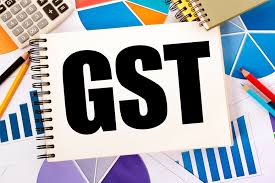Explained: The retrospective changes to income-tax law, how they impact you
The Union Budget 2022-23 brought in some amendments to the Income Tax Act that would be effective retrospectively.
Making a retrospective amendment to the Income-tax Act from 2005-06, the Budget has clarified that cess and surcharge will not be allowed to be claimed as deductions in the form of expenditure, a practice that some companies and businesses were resorting to in the absence of legal clarity.
It has also allowed exemption of the amount received for medical treatment and on account of death due to Covid-19 retrospectively from April 1, 2020.
The Budget has also made changes to the I-T law, making space for questioning by the tax department to explain the source of funds at the hands of the creditor.
What is the retrospective change about cess and surcharge?
Citing some court rulings over the years that had given benefit to taxpayers in claiming cess as expenditure and not tax, the tax department said the retrospective amendment is being done to correct the anomaly.
“This amendment will take effect retrospectively from 1st April, 2005 and will accordingly apply in relation to the assessment year 2005-06 and subsequent assessment years,” the Budget documents stated. The change is being brought from AY 2005-06 as education cess was brought in for the first time by the Finance Act, 2004.
The court rulings differentiated between income tax and education cess on income tax, and in absence of a specific disallowance for ‘education cess’, courts had taken a view beneficial for taxpayers in many cases. In order to nullify the effect of such court rulings and to consider such rulings against the intention of the law, a clarificatory amendment has been introduced in the income tax law, providing that any surcharge or education cess on income tax shall not be allowed as business expenditure.
The Budget has allowed exemption of the amount received for medical treatment and on account of death due to Covid-19 retrospectively from April 1, 2020.
“Any sum of money received by an individual, from any person, in respect of any expenditure actually incurred by him on his medical treatment or treatment of any member of his family, in respect of any illness related to Covid-19 subject to such conditions, as may be notified by the Central Government in this behalf, shall not be the income of such a person,” it said.
It has also allowed exemption for amount received by a member of the family of a deceased person, from the employer of the deceased person (without limit), or from any other person or persons with such money not exceeding Rs 10 lakh, where the cause of death of such person is illness relating to Covid-19, and the payment is received within twelve months from the date of death of such person.
TheSeparately, gifts and freebies to doctors shall not be treated as business expenditure under section 37 of the Income-tax Act.
Citing various court rulings, the Budget said the legal position is clear that the claim of “any expense incurred in providing various benefits in violation of the provisions of Indian Medical Council (Professional Conduct, Etiquette and Ethics) Regulations, 2002 shall be inadmissible under section sub-section (1) of section 37 of Act being an expense prohibited by the law”.
se amendments will be effective retrospectively from April 1, 2020.
This has clarified that any expense incurred in providing various benefits in violation of the provisions of Indian Medical Council (Professional Conduct, Etiquette and Ethics) Regulations, 2002 shall be inadmissible under law. This step is likely to discourage pharma companies from giving freebies to medical professionals, and claim these expenses as deductions.
What are key legislative changes for questioning sources of funding for companies?
In another legislative change, a provision has been introduced stating that the source of funding for loan and borrowings for a recipient will be treated as explained only if the source of funds is also explained in the hands of the creditor.
Download our App to get knowledge updates: https://play.google.com/store/apps/details?id=com.app.gstmitra




Comments
Post a Comment